Optimizing Your Monthly Menstrual Cycle: What to Eat According to Each Phase
If you're someone with a menstrual cycle, you may already be attuned to the ebbs and flows of your body and mood throughout the month. But did you know that what you eat (and drink) can significantly impact the intensity and overall experience of each stage, from ovulation to post-menstruation? In this guide, let's delve into the nutritional recommendations tailored to each phase of your menstrual cycle, helping you optimize your well-being throughout the month. 🌸 #MenstrualHealth #NutritionForWellness
Experts emphasize that the nutritional needs vary during each stage of the menstrual cycle.
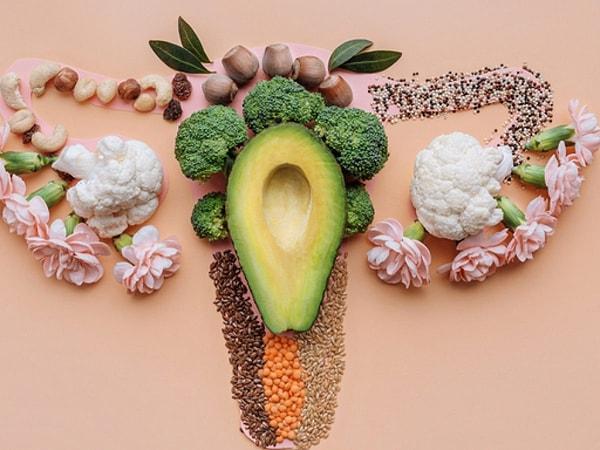
Even if you're knowledgeable about healthy eating and supporting your body throughout the month, it's essential to learn about methods that will make you feel your best. Understanding your body's needs helps you take care of it in the most appropriate way.
Believe it or not, natural hormonal fluctuations during the menstrual cycle can influence various aspects of metabolism, including metabolic rate, insulin sensitivity, and appetite levels.
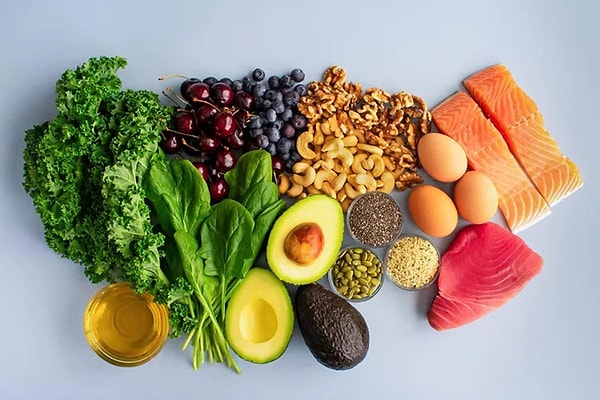
The main hormones involved in the menstrual cycle, estrogen and progesterone, can impact energy expenditure, macronutrient utilization, and hunger signals. These effects can have significant consequences for weight management, energy levels, and mood regulation.
Menstrual period: From day 0 to day 7
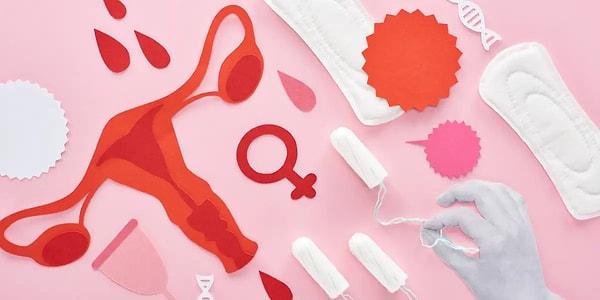
The beginning of the menstrual cycle is typically defined as the active bleeding period. This phase usually lasts from the zeroth day to the seventh day of the cycle, with the duration varying from person to person. During this stage, levels of progesterone and estrogen hormones are at their lowest. This process may vary slightly for each individual.
What to eat?

During the menstrual period, adopt a diet rich in antioxidants. The body produces a considerable amount of free radicals associated with pain and discomfort during menstruation. However, antioxidants can neutralize these free radicals, alleviating menstrual pain and reducing oxidative stress. We recommend consuming antioxidant-rich foods such as green vegetables, nuts, whole grains, sweet potatoes, red cabbage, fruits, and green tea during this period. It's advised to avoid sweets to prevent an increase in insulin resistance.
Additionally, these foods are packed with beneficial nutrients for the body, such as vitamins A, C, and E, selenium, zinc, and beta-carotene.

If you experience menstrual cramps, focus on consuming foods with anti-inflammatory properties, as they can reduce inflammation and alleviate pain. Some anti-inflammatory foods to add to your diet include nuts, ginger, turmeric, dark chocolate, seeds, and olive oil.
Follicular phase: Approximately day 8 to day 13
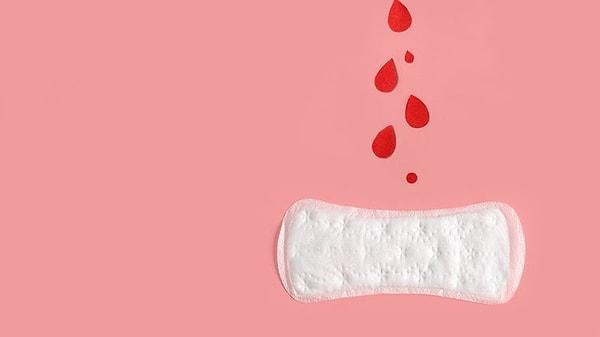
After the menstrual period, your body enters the follicular phase, during which up to 20 eggs begin to develop. Only one of these eggs will mature fully and be released during the next phase, ovulation.
Dr. Rissetto notes that all hormone levels start low during this period and estrogen peaks just before ovulation. Generally, this estrogen increase can make you feel happy and ready to be the cheerful companion of the group. In short, this phase is often when many menstruating individuals feel their best.
What to eat?
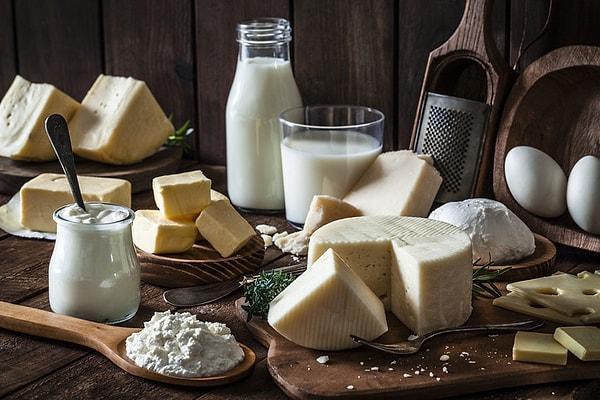
During the follicular phase, it's suggested that your body's insulin sensitivity increases, making fat burning more effective. Therefore, this period is suitable for consuming alcohol, caffeine, and high-fat dairy products in moderation. These substances can negatively affect energy levels, sleep quality, and estrogen levels, potentially causing discomfort during the ovulation period.
Ovulation period: Approximately day 14 to day 17
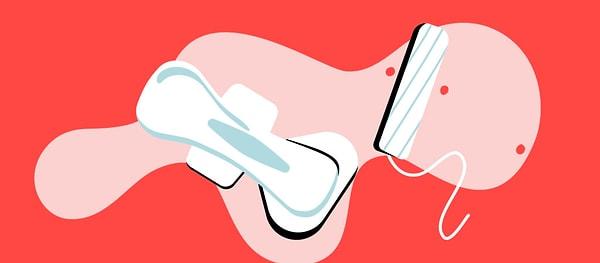
During these two to three days each month, known as the ovulation period, you are in the most fertile state. Doctors explain that estrogen, along with other crucial hormones like testosterone, follicle-stimulating hormone (FSH), and luteinizing hormone (LH), reaches its highest levels just before ovulation. This hormonal surge triggers the release of an egg from the ovary.
What to eat?
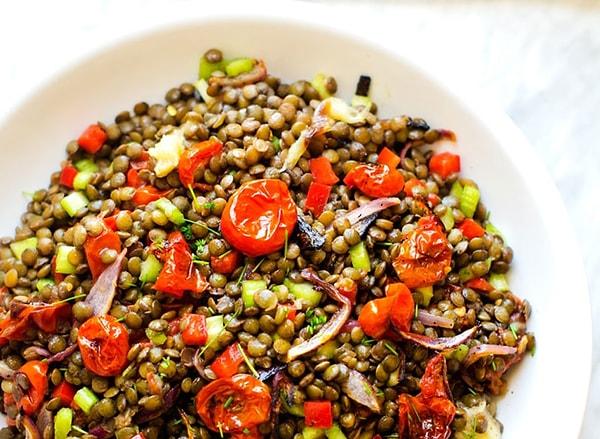
Slow-digesting carbohydrates are an excellent choice during this phase. Many individuals report feeling some discomfort during ovulation, while others experience intensified sexual desires. It's essential to listen to your body.
During ovulation, the body tends to preferentially use carbohydrates as fuel, making it more challenging to burn fat. Foods such as oatmeal, whole grains, quinoa, barley, lentils, and beans can help prevent insulin fluctuations and reduce feelings of hunger.
Luteal phase: From day 17 to day 28
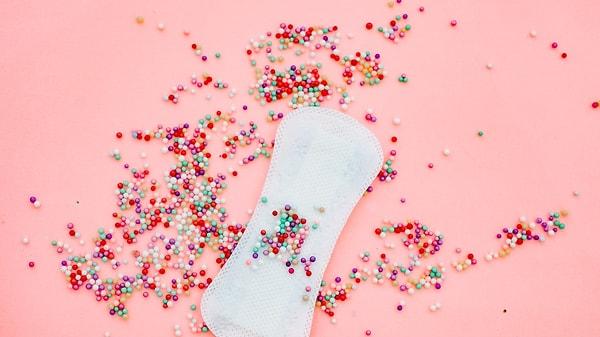
After ovulation, estrogen levels drop, and progesterone levels reach their highest point just before the onset of menstruation. If progesterone does not balance with a slight increase in estrogen, premenstrual syndrome (PMS) symptoms can occur. This phase underscores the importance of hormone balance, which varies individually.
What to eat?
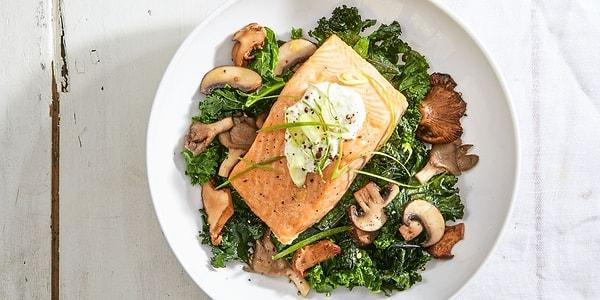
You probably already know what your cravings will be, but during this phase, you can indulge in chocolate. Consuming foods rich in B6 vitamins before menstruation is healthier for magnesium balance. To manage PMS symptoms, focus on foods rich in B6 vitamins. Dr. Choi emphasizes the importance of increasing B6 vitamin intake during this period. Foods high in B6 include chickpeas, salmon, dark leafy greens, potatoes, peas, and corn.
However, we want to caution you on one aspect.

Excessive intake of B6 vitamins can lead to nausea, dizziness, and even numbness in the hands and feet. This imbalance can disrupt your body's delicate equilibrium. If you aim to increase progesterone levels, avoid adding extra stress to your body during this process. Stress can disrupt this balance and negatively impact your health. Therefore, minimizing stress and maintaining a relaxed lifestyle is crucial during this period.
Keşfet ile ziyaret ettiğin tüm kategorileri tek akışta gör!


Send Comment
Article is good & helpful